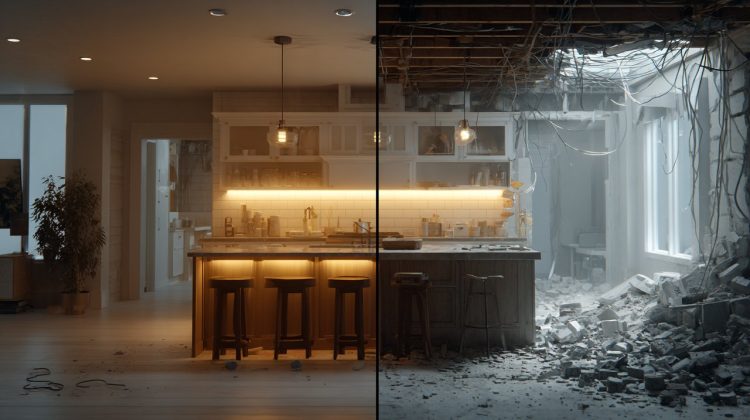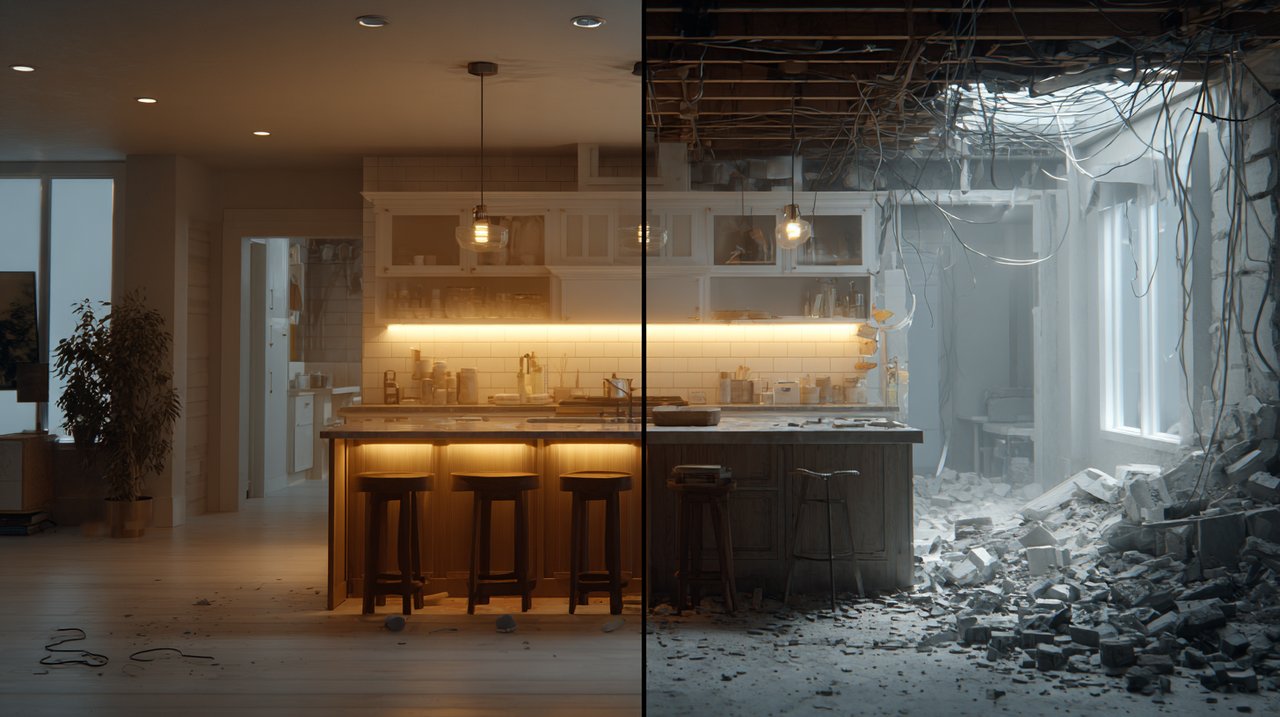The aspiration for a perfect home, where every detail resonates with personal vision, is a deeply held one for many. Yet, after decades witnessing the intricate dance of renovation and construction, it has become apparent that far too many such dreams falter, dissolving into unforeseen complications and financial strain. This often stems from a fundamental misstep: a failure to truly discern who merits trust with one’s most significant asset.
It is a recurring narrative: homeowners, perhaps swayed by an attractively low bid or a persuasive promise, rush into commitments without sufficient scrutiny. The sobering realization, indeed, often surfaces when one observes the paucity of genuine due diligence undertaken. This endeavor extends far beyond the mere physical act of building; it is, at its core, about safeguarding one’s future and preserving an invaluable sense of peace.

The Quest: Beyond Superficial Searches
When the need for a contractor arises, the initial inclination often leads one to search engines or seek informal referrals. While these are valid starting points, they represent merely the beginning of a far more critical vetting process. Consider the cautionary tale of a client who, in good faith, engaged the very first individual who answered their call, simply because he projected an amiable demeanor. What began as a straightforward kitchen remodel escalated into a significant structural crisis within six months.
It quickly became evident that mere ‘friendliness’ was no substitute for professional qualification, and that initial low bid proved to be a classic bait-and-switch. This underscores a crucial distinction: the objective is not to secure the cheapest option, but rather to identify the most appropriate and capable partner for your project. One would scarcely purchase a parachute based solely on its price tag; your home, an investment of comparable gravity, demands an equivalent level of meticulous examination.
Where to Commence a Prudent Search
To navigate this critical phase, a multi-faceted approach is advisable. The following avenues often yield the most reliable candidates:
- Discerning Word of Mouth: Seek recommendations not just from acquaintances, but specifically from those whose completed projects you have personally inspected and whose judgment you implicitly trust.
- Established Industry Associations: Reputable organizations such as the National Association of Home Builders (NAHB) frequently maintain directories of their members, offering a vetted pool of professionals.
- Trade Suppliers and Distributors: Lumberyards, plumbing, and electrical supply houses possess an intimate knowledge of local contractors. They observe firsthand who maintains timely payments and whose craftsmanship consistently meets high standards, providing an invaluable, unvarnished perspective.
Once initial candidates are identified, it is imperative to secure at least three comprehensive bids. These should be detailed proposals, not mere ballpark figures offered over the phone. Insist that prospective contractors genuinely earn your consideration, and do not hesitate to withdraw if any aspect of their approach or proposal raises concerns.
The Interview: Distinguishing Competence from Rhetoric
With a refined shortlist in hand, the real work of discernment truly begins. The face-to-face interview is not a casual discussion but a rigorous inquiry, designed to expose the depth of a contractor’s professionalism and integrity. It is here that the critical test of their capabilities unfolds.
“It is imperative to pose probing questions. Their responses, or lack thereof, will illuminate everything you need to know about their operational standards and ethical framework.”

Essential Lines of Inquiry
The following questions serve as a foundational framework for this critical discussion, designed to elicit concrete, verifiable information:
- “May I review your current license and insurance certificates?” Do not merely accept verbal assurances. Obtain copies and independently verify their validity with the respective issuing authorities. This step is unequivocally non-negotiable.
- “How many projects precisely analogous to mine have you completed recently?” Experience, particularly in specific project types, holds significant weight. Request photographs and references pertaining to these particular engagements.
- “Who, specifically, will be working on my property, and are they direct employees or subcontractors?” This distinction is crucial. Instances abound where contractors have absconded, leaving homeowners liable for unpaid subcontractors. A clear understanding of accountability is paramount.
- “What is your typical project timeline, and how do you manage unforeseen delays?” While unforeseen circumstances are inevitable, a proficient contractor will possess a well-articulated strategy for managing setbacks and ensuring prompt communication.
- “May I speak with your three most recent clients?” Following this request, it is incumbent upon the homeowner to diligently follow through and contact these individuals. Inquire about communication efficacy, site cleanliness, problem-solving aptitude, and whether they would engage the contractor again.
Observe their demeanor and responses closely. Any hesitation or defensiveness can be a significant warning sign. A truly professional contractor will welcome these questions, recognizing them as an indication of a serious client, and will respect the thoroughness of your approach. Dismissiveness, conversely, should be regarded as a primary red flag.
The Contract: Your Indispensable Safeguard
This is the juncture where many individuals, in their haste, inadvertently create future liabilities. A past client, for instance, cursorily reviewed the "miscellaneous fees" within his contract, only to later discover he was billed an additional thousand dollars for debris removal—an item that should have been encompassed in the initial bid. Every single line of this document warrants meticulous examination.
The contract serves as your singular, ironclad protection; it is the ultimate line of defense against potential disputes and financial setbacks. Its clauses are not mere formalities, but codified safeguards born from past experience and future foresight.
Critical Contractual Provisions
Ensure your contract explicitly addresses the following non-negotiable elements:
- Detailed Scope of Work: Every item, material, and finish must be precisely specified. Ambiguous "or equivalent" clauses should be avoided; clarity on what you are receiving is paramount.
- Payment Schedule: Milestones must be clearly defined and unequivocally linked to completed work, rather than arbitrary dates. A prudent practice dictates never paying more than 10-20% upfront.
- Change Order Process: The methodology for documenting and approving any alterations to the project must be explicit. Verbal agreements are notoriously unreliable and should be avoided at all costs.
- Lien Waivers: As payments are made, ensure you receive lien waivers from both the general contractor and all major subcontractors. This protects your property from potential liens if they are not paid.
- Warranty Information: The scope, duration, and responsible party for all warranties must be clearly stipulated in writing.
- Dispute Resolution: The agreed-upon mechanism for addressing disagreements—be it mediation or arbitration—should be established upfront, providing a clear recourse should it become necessary.
Regarding insurance, its verification is akin to inspecting a spare tire before a long journey: one hopes it is never needed, but its absence in a moment of crisis can be catastrophic. Confirm with absolute certainty that the contractor’s general liability and worker’s compensation insurance are both current and adequate. Obtain proof of coverage and, crucially, contact their insurer directly to verify its authenticity and scope. Do not affix your signature to any document that you do not fully comprehend. If necessary, engage legal counsel for review; this modest investment can avert monumental headaches, potential litigation, and significant financial exposure down the line. This caution, in particular, cannot be overstated.
The Ultimate Dividend: Serenity of Mind
Embarking on a home renovation is, by its very nature, a substantial undertaking, representing a significant investment both emotionally and financially. All this vigilance—the careful selection of a contractor, the rigorous questioning, the meticulous review of the contract—is not born of an inclination toward difficulty or undue paranoia. Rather, it is an essential process designed to ensure that the initial dream, the vision of a perfect home, does not devolve into the very nightmares described at the outset.
This diligent approach transforms a potentially stressful and costly journey into a profoundly rewarding one, culminating in a home that truly embodies the solid, beautiful sanctuary envisioned. This, ultimately, is the profound dividend: the enduring serenity of mind that accompanies a well-executed project, a testament to foresight and judicious decision-making.





